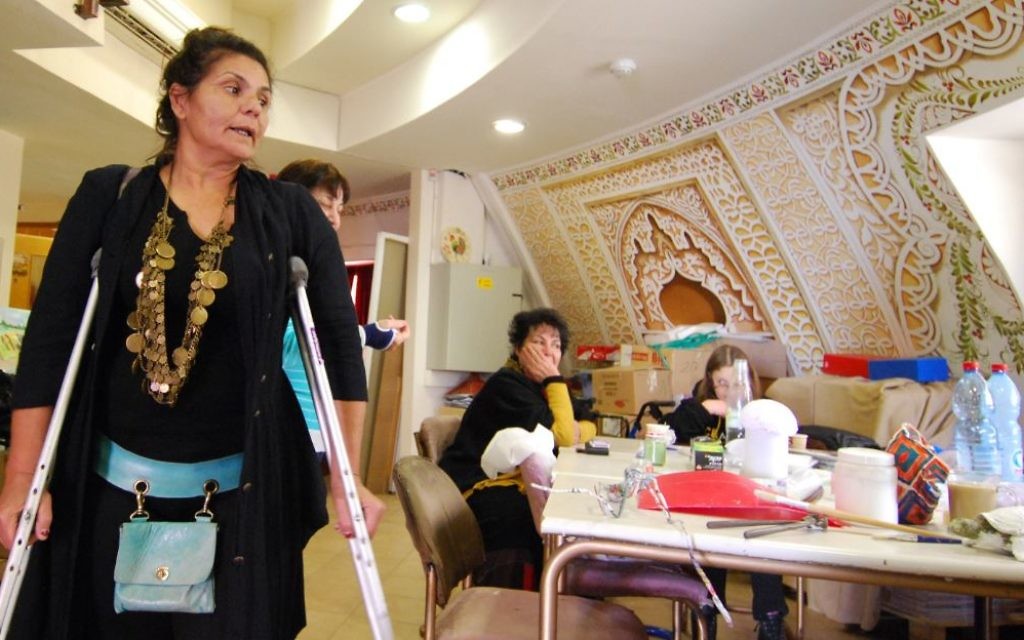Atlantans Support Sports as Path to Inclusion
Non-profit in Israel helps incorporate citizens with disabilities into society.

Jewish Atlantans David and Merle Horwitz have joined forces with the American Jewish Joint Distribution Committee, the Israeli government and the Ruderman Family Foundation to invest in the flagship program for Israelis with disabilities, Israel Unlimited, and its new initiative, Friends for Healthy Living.
Friends for Healthy Living brings people with and without disabilities together through sports. Working with government agencies, the pilot project is training sports facilitators, creating a mobile app that connects people to run and walk together, and has worked with the soccer club Hapoel Katamon to establish two groups that practice with people with psychiatric needs twice a week.
The goal of the pilot is to reach 5,000 people with disabilities in five cities in the next three years.
Get The AJT Newsletter by email and never miss our top stories Free Sign Up
“The person-to-person connection is critical, and having the opportunity to create a friendship between a person with a disability with someone without continues to promote inclusion,” said Avital Sandler-Loeff, the director of Israel Unlimited. “Friends for Healthy Living makes this possible through sports, thanks to generous donations from David and Merle Horowitz.”
Partnering with the JDC and helping create Friends for Healthy Living were natural moves for the Horwitzes, whose extended family includes people with disabilities. They have supported initiatives for people with disabilities in Atlanta and South Africa.
Photo courtesy of David Horwitz

After joining the JDC as a board member, David Horwitz expressed his interest in donating to an organization assisting people with disabilities and was presented several proposals before choosing Friends for Healthy Living.
“After traveling to Israel, my wife and I received an in-depth briefing and were very impressed with what the JDC had to say. We realized early on we would have a major impact by working with the JDC,” Horwitz said.
Another JDC board member is disabilities advocate Jay Ruderman, the president of the Ruderman Family Foundation, whose philanthropic focus is on including people with disabilities, fighting stigmas and educating Israeli leaders about the diversity of America’s Jewish community.
“The rights of people with disabilities, the world’s largest minority, often do not receive the appropriate attention because working with people with disabilities is often approached as a charity. The No. 1 issue they face is loneliness or segregation from society, and 70 percent are unemployed. Yet when you help produce friendships and allow individuals to become a part of community, they inevitably become more connected, visible and active,” Ruderman said.
Sandler-Loeff said 878,000 Israelis with disabilities are of working age, representing roughly a quarter of Israel’s working-age population.
“They are a minority group that has been systematically excluded from society, and it is important to move away from segregation to inclusion,” Ruderman said. “The Jewish community has been at the forefront of civil rights issues, whether it was racial, LGBT or disabilities. Our role on the inside as a funder has been to speak with members of government in the United States and in Israel and on the outside as activists to help spread the word through our work with the media on how to treat people with disabilities equally.”
Misconceptions about people with disabilities are common in Israel in relation to employment, housing and participation in sports, among others. Sandler-Loeff said 53 percent of Israelis do not wish to rent apartments to people with disabilities, and 18 percent of Israelis think people with disabilities are dangerous to employ.

“This is not an issue of mercy but of human rights,” she said. “Studies have shown an inclusive community is a better one.”
The Israeli government backs efforts to expand inclusion. “Yet there is still much to be done,” Sandler-Loeff said. “We have so much to learn from the U.S. as there are a lot of gaps in helping individuals with disabilities live independently and attain employment.”
She said 10,000 Israelis with disabilities, in a nation of 8 million people, live in institutions. They often are recommended to seek that kind of arrangement rather than live on their own.
Housing is a main focus for Israel Unlimited. It works with the wider community to change attitudes and give people the skills to help those with disabilities. The organization trains building committees and religious leaders and works with community members to welcome neighbors with disabilities.
Israel Unlimited also has established 15 student groups at universities that incorporate people with and without disabilities to work together to change the status quo.
“Since its initiation, Israel Unlimited has made vast strides in society,” Sandler-Loeff said. “We measure everything we do and discovered how happy people with disabilities are once you give them an opportunity. Research has shown being included in the community equals a better quality of life and economy.”
Although Friends for Healthy Living is in its infancy, it is making strides as a partnership of businesses and the Israeli government. Companies such as Samsung and IBM are engaged with Friends for Healthy Living tech options, such as its smartphone app.
The next phase involves marketing Friends for Healthy Living by leveraging contacts with Israeli municipalities and sharing success stories.
“The marriage of passion and ability to change people’s lives coincides with our work in Israel. When you create partnerships and get organizations involved, that’s when you realize you have an opportunity to help make a difference,” Horwitz said.
“As an enlightened society, we are not completely there in recognizing people with disabilities and how they wish to be perceived,” Ruderman said, “but we will get there, as we have a long way to go in dealing with everyday stigmas.”




comments